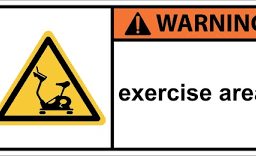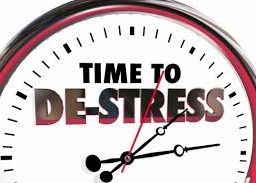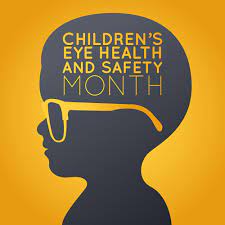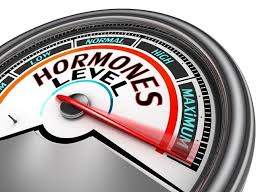
Signs of Hormone Imbalance: What You Need to Know
Welcome to our comprehensive guide on hormone imbalance, where we demystify common myths and empower you with insights into optimizing hormonal health. Hormone imbalance affects both men and women, and it’s essential to understand the facts, separate from fiction. In this post, we’ll explore the realities of hormone imbalance, debunk prevalent misconceptions, and provide actionable tips for achieving hormonal harmony. Whether you’re navigating changes related to age or seeking ways to enhance your well-being, this guide is your roadmap to understanding and managing hormone balance effectively.
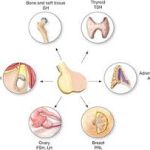
Hormones are vital regulators of various bodily functions, from metabolism to mood and fertility. When these chemical messengers fall out of balance, it can lead to a range of health issues. However, this condition is often misunderstood, surrounded by myths and misconceptions.
What is Hormone Imbalance?
Hormone imbalance, also known as hormonal disruption or endocrine imbalance, occurs when the body produces excessive or insufficient amounts of a specific hormone. These imbalances can affect both men and women and may manifest differently depending on the hormones involved. Some common hormones impacted by imbalances include insulin, thyroid hormones, sex hormones (estrogen, progesterone, and testosterone), and stress hormones (cortisol).
Common Myths about Hormone Imbalance
Myth 1: Hormone Imbalance Only Affects Women
– Reality: This condition can affect individuals of all genders. While hormonal changes are often associated with women during menstruation, pregnancy, and menopause, men can also experience imbalances. Conditions like Polycystic Ovary Syndrome (PCOS) are more common in women, but men can also experience hormone-related issues such as low testosterone.
Myth 2: Hormone Imbalance Is Solely Related to Aging
– Reality: While levels may change with age, imbalances can occur at any stage of life due to various factors like stress, diet, and underlying medical conditions.
Myth 3: Hormone Imbalance Is Always Evident
– Reality: Not all of this condition produces obvious symptoms. Some individuals may have imbalances without noticeable signs, making regular check-ups important for early detection.
Myth 4: All Hormone Imbalance Symptoms Are the Same
– Reality: This condition can manifest in various ways. For example, imbalances in thyroid hormones can lead to fatigue and weight gain, while an imbalance in insulin can result in diabetes. Recognizing specific symptoms is crucial for accurate diagnosis and treatment.
How to Improve Hormone Imbalance

1. Healthy Diet: A balanced diet rich in whole foods, lean proteins, healthy fats, and plenty of fruits and vegetables can help support hormonal levels. Foods like cruciferous vegetables (e.g., broccoli, kale) can aid in detoxifying excess estrogen. Avoid excessive sugar, processed foods, and trans fats.
2. Regular Exercise: Physical activity can help regulate hormones, improve insulin sensitivity, and reduce stress. Aim for a mix of cardio and strength training exercises.
3. Stress Management: Chronic stress can disrupt hormone levels, especially cortisol. Incorporate relaxation techniques such as meditation, yoga, or deep breathing exercises into your daily routine.
4. Adequate Sleep: Prioritize quality sleep as it is crucial for hormone regulation. Aim for 7-9 hours of uninterrupted sleep each night. Sleep is crucial for hormone regulation, especially growth hormone and cortisol.

5. Hormone Replacement Therapy (HRT) In some cases, doctors may recommend HRT to manage hormone levels, especially during menopause or for individuals with thyroid disorders.
6. Consult a Healthcare Professional: If you suspect a hormonal issue or experience persistent symptoms like irregular periods, mood swings, or unexplained weight changes, consult a healthcare provider. They can perform tests to assess your hormone levels and develop a personalized treatment plan if necessary.
7. Limit Toxins: Reduce exposure to endocrine-disrupting chemicals found in plastics, pesticides, and certain skincare products. Opt for natural, toxin-free alternatives when possible.
Hormone imbalance is a complex issue that can affect anyone at any age. It’s essential to separate fact from fiction when it comes to understanding and addressing hormonal health. By adopting a healthy lifestyle, managing stress, and seeking professional guidance when needed, you can improve your hormone balance and overall well-being. Remember that everyone’s hormonal journey is unique, so be patient and persistent in your pursuit of hormonal harmony.
Disclaimer: The information provided in this content is for general informational purposes only. It is not intended as medical or healthcare advice, diagnosis, or treatment. Always seek the advice of a qualified healthcare professional with any questions you may have regarding a medical condition or healthcare decisions.




